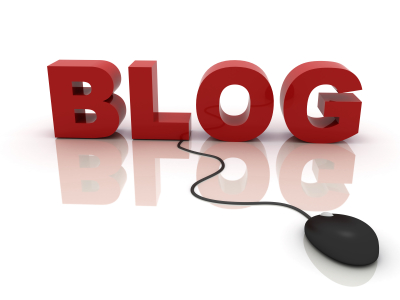
Our Blog Page 6 (2023)
France, 22 October 2023
"Dream Horse" misleading movie about the horse racing industry!
Yesterday I saw the movie "Dream Horse" on British TV. I was not happy..... When you really start to think about what you get to see, you only observe humans and their emotions, humans only thinking about themselves and what they want and how they feel useful in their lives, but nothing about what the horse feels and wants..... First of all a mare has been forced to get pregnant and to give birth to a foal, which was fatal to her in the end. She died, because humans wanted to breed a race horse. It was his vocation in life. Was he asked if he wanted to? No! But their owners pretended he did want to race. How do they know? Have they asked him?
And then the foal was forced to live on its own in a barn on an allotment. Horses are group animals and need to have a companion. Fortunately when he was old enough he went to a place with other horses, however it was a training center to train him for competitions. You don't see anything about the horse in the movie, how he lives, how he is trained, how he probably is beaten to do what people want of him: to be a race horse. He wins a couple of times, but then he gets an injury, he tares a tendon. Reason for the professionals to put him down if he never would be able to run again. For a real animal lover this is NOT a reason to put down a horse. Fortunately everything is done to treat him. His torn tendon is cured with a new stem cell therapy. He survives because he can run again. He wins. And after his "racing career" he retires. All ends well for him. But the breeding of other unfortunate horses continues.....
I was eager to know what the animal protectors have to say about this film, because it really bothers me and I found this link of PETA: https://www.peta.de/neuigkeiten/dream-horse-tierquaelerei/
It is an article in german, easily to translate with google. This is what they say:
"Film “Dream Horse” glorifies animal cruelty in equestrian sports
Published on August 21, 2021by PETA team
The film “Dream Horse” was released in German cinemas on August 12, 2021. [1] The film is about the story of the horse Dream Alliance, which is based on a true story. It tells how the British horse breeder Jan Vokes began her career by breeding so-called racehorses . However, the film's presentation as a comedy obscures the sad reality of equestrian sports and the systematic exploitation of animals.
5 reasons why no one should watch “Dream Horse.”
1. The film romanticizes the cruel reality of equestrian sports
The film conveys the image that breeding a horse for just one reason and training it to peak performance until it emerges as a winner in horse races is a worthwhile goal in life - in this case it is the dream of British horse breeder Jan Vokes. In reality, however, “sport horses” often injure themselves due to extreme physical stress and violent handling during training or competitions; they fall, sustain serious injuries or even die: either they are euthanized because of complicated bone fractures, among other things, or they die, for example Cardiovascular failure, aortic rupture and stress colic. [2]
2. “Racehorse” Dream Alliance suffered in real life
The film revolves around the story of the horse Dream Alliance. The true story surrounding Jan Vokes' plan to breed a successful "racehorse" serves as a template. For this she bought the mare Rewbell at a price of 350 pounds. For £3,000 she had the mare impregnated by the American thoroughbred stallion Bien Bien, a retired “racehorse”. The foal Dream Alliance emerged from this breeding. His name was given to him by the group of investors who made the breeding of the foal financially possible.
Dream Alliance was Jan Vokes' first "breeding project" in the so-called horse racing sport - but Vokes had already bred greyhounds and pigeons for competition purposes. [3]
Dream Alliance was forced to participate in numerous races. The gelding emerged victorious for the first time in his fourth race in 2006. [4] During a competition in 2008, Dream Alliance tore a tendon - only because the jockey acted quickly and the manager in charge refused, the injured animal was not euthanized. Afterwards, Dream Alliance was successfully treated with a new stem cell therapy - and was forced to take part in horse racing again. [3] At the 2010 Grand National, the gelding was unable to finish the race - he was subsequently diagnosed with lung problems. By 2012, Dream Alliance was still forced to take part in seven more races before retiring in 2012. The majority of the income from the races went towards his medical treatments. [3]
3. Breeding animals must not be a business model
In the film, the barmaid Jan Vokes wants to breed a racehorse at any cost. To do this, she buys a mare, which she has impregnated by a so-called breeding stallion at a cost of several thousand pounds. In the equestrian scene, methods such as artificial insemination and sometimes surrogacy are common practice when breeding future competition horses - in order to get the greatest possible “benefit” from all animals involved. The welfare of the animals is usually secondary for profit reasons.
4. Movie horses suffer in the film industry
Animals are not there to entertain us . This applies to animal cruel competitions, but also to film and television . When animals are used in films and television, they are regularly forced into obedience using violence - beatings and electric shocks are often part of the training program. In the film, Dream Alliance alone was embodied by several horses - numerous other animals had to stand in front of the camera, were forced into staged, cruel races and were exposed to a high risk of injury during filming. [3]
5. “Dream Horse” conveys outdated ways of thinking: speciesism
Overall, the film “Dream Horse” conveys a false image and a completely outdated way of thinking: that animals have to fulfill a “use” for us humans. The assumption that animals should succeed in competitions, bring us profit, entertain us, or serve as food for us is speciesism . In the film, Jan Vokes says to Dream Alliance: “ This is what you were born for, Dream. “[1] The message of the film is that it is okay to see animals as a means to an end and to ignore their individual needs. However, animals are sentient beings who deserve to live as self-determined a life as possible - without coercion or violence.
“Dream Horse” trivializes animal cruel industries
“Dream Horse” gives the industry associated with massive animal suffering a platform, while trivializing the systematic exploitation of sentient beings and putting the well-being and needs of horses in the background.
Would you rather watch animal-friendly films?
There are numerous entertaining films in cinemas and on various streaming platforms that show that entertainment can be possible without animal suffering. More and more films are avoiding the use of animals and instead rely on the latest CGI technology . The exciting documentaries “ Seaspiracy ” and “ My Teacher, the Octopus ” show what respectful treatment of animals looks like and why we have to protect them."
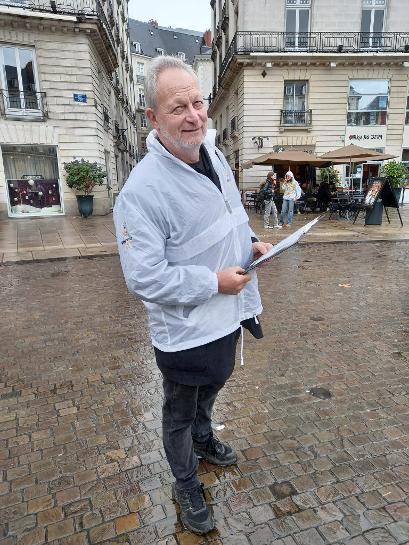
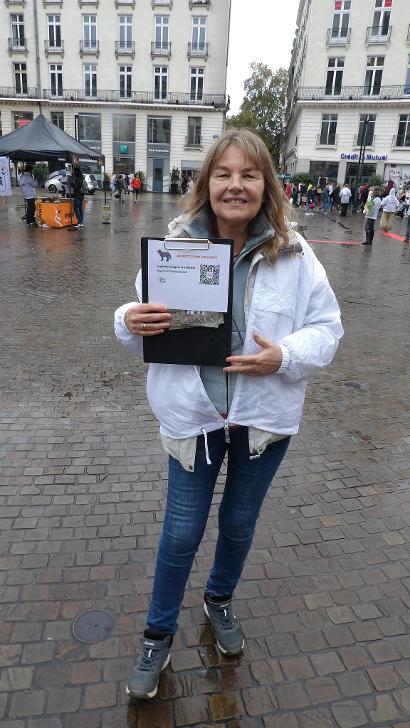
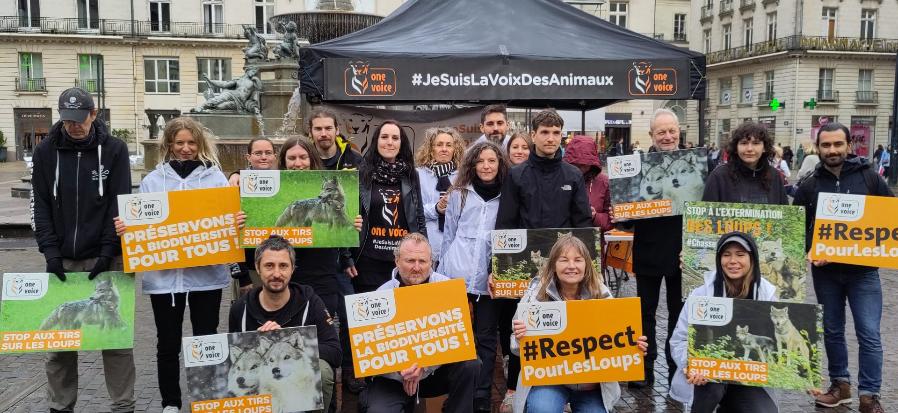
France, 4 October 2023
Today is #WorldAnimalDay. This day should be a celebration for all animals.
Unfortunately, this is far from being the case. The dog or cat in the house gets a bit more attention today, but at the same time, cows, pigs, chickens and all the other consumption animals disappear into most people's stomachs without a second thought.
We discriminate on the basis of the species of animals. One is pampered, the other is eaten. This phenomenon is known as #Speciesism. The word Speciesism was invented by Richard Ryder and first used by Peter Singer in the 1970s. Peter Singer's books are all stored in our upstairs library. I've read almost all of them.
It was only when I read these books that I realised how widespread this movement actually is. That it's recognised all over the world. A movement that is often ridiculed by people who still want to eat meat, who still want to kill animals in hunts, by people who want to ease their conscience in this way. Ridicule seems to be the only way to justify their reprehensible behaviour.
And then Aymeric Caron's book "Antispeciste" came out. We attended the presentation of his book in La Rochelle and of course asked for an autograph. We couldn't resist  . Funnily enough, when I started talking to him in my poor French (I was a bit nervous as it's not every day you meet a man so well known in France
. Funnily enough, when I started talking to him in my poor French (I was a bit nervous as it's not every day you meet a man so well known in France  : he used to be on tv in talk shows, has written many books and now is as a vegan member of the French Parliament ) he recognised my Dutch accent and confided in us that he was half Dutch on his mother's side. But back to the essence of my story: his book "Antispeciste" was a real revelation and confirmed what we already knew about speciesism. The more we knew about the subject, the more we started to look at the world differently, and in particular the way humans treat other animals. As humans, we cause a lot of suffering without even knowing it.... And that really has to change.
: he used to be on tv in talk shows, has written many books and now is as a vegan member of the French Parliament ) he recognised my Dutch accent and confided in us that he was half Dutch on his mother's side. But back to the essence of my story: his book "Antispeciste" was a real revelation and confirmed what we already knew about speciesism. The more we knew about the subject, the more we started to look at the world differently, and in particular the way humans treat other animals. As humans, we cause a lot of suffering without even knowing it.... And that really has to change.
In addition to our involvement with association Nos Amis Les Animaux NALA 85480, we thought it would be a good idea to set up our own website, under the name of "Antispecisism". https://anti-speciesism.com/anti-speciesism---our...
We've covered most aspects. The site is available in English, French and Dutch. On the site we have also given a number of tips on what you can do yourself. https://anti-speciesism.com/What-You-Can-Do.php
(there's also a page here on facebook in French: https://www.facebook.com/jesuisantispeciste)
One of the most important things, of course, is to stop eating animals. And their products like milk and eggs. It's certainly not always easy. But it's worth it, for your conscience first of all, for the animals, for the environment, the climate and for your health. The latter was not the most important reason why we stopped eating animal products, but it is a very practical one. If it wasn't for the fact that just today we received the results of our annual blood tests which, after 11 years of veganism, are still very good.
We'll continue to do so. What about you? Wouldn't it be great if you decided to go vegan for World Animal Day 2023? And to be one of the thousands of vegans who already exist all over the world? #goveganfortheanimals
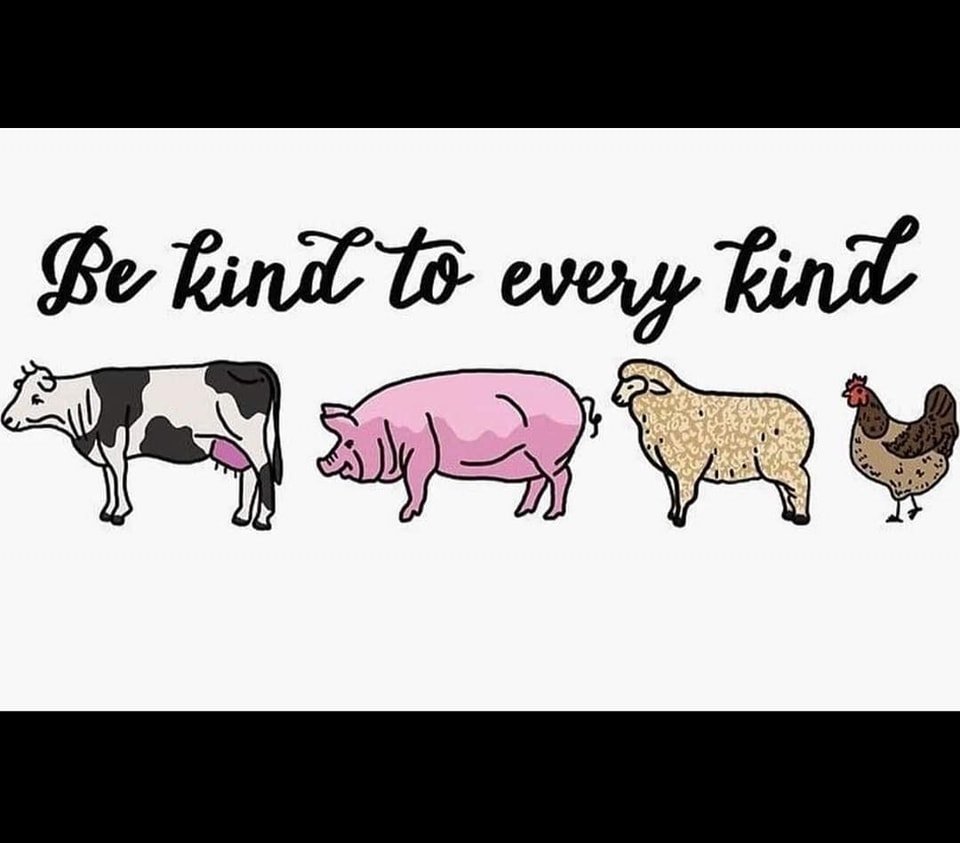
France, 4 September 2023
We would like to share with you a very interesting article about the protest of animals against human oppression, written by
- Alexandra Isfahani-Hammond, Associate Professor Emerita of Comparative Literature, University of California, San Diego published in "the Conversation".
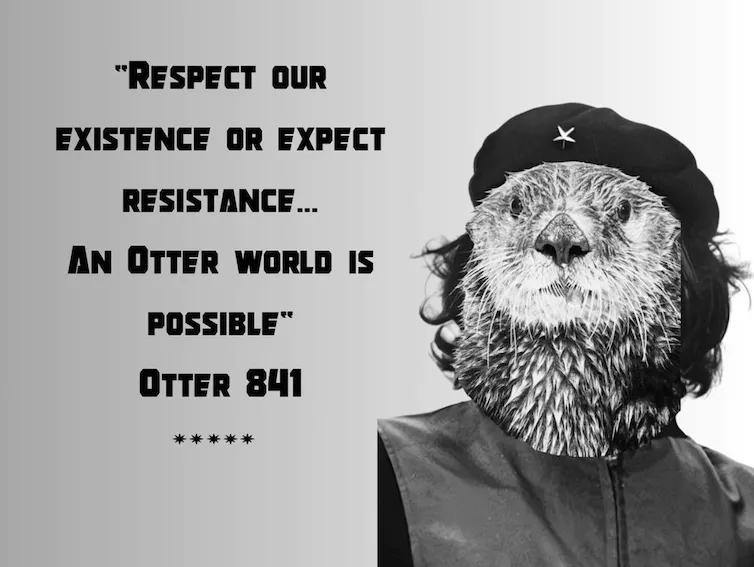
Memes position the otter as a renegade revolutionary, modeled on Ché Guevara. thesurfingotter via Instagram
France 20 May 2023
Manifestation against the killing of foxes and badgers.
The manifestation was organised by volunteers of One Voice in La Rochelle. We were present.
Nantes, 21 October 2023
Action for wolves in France
